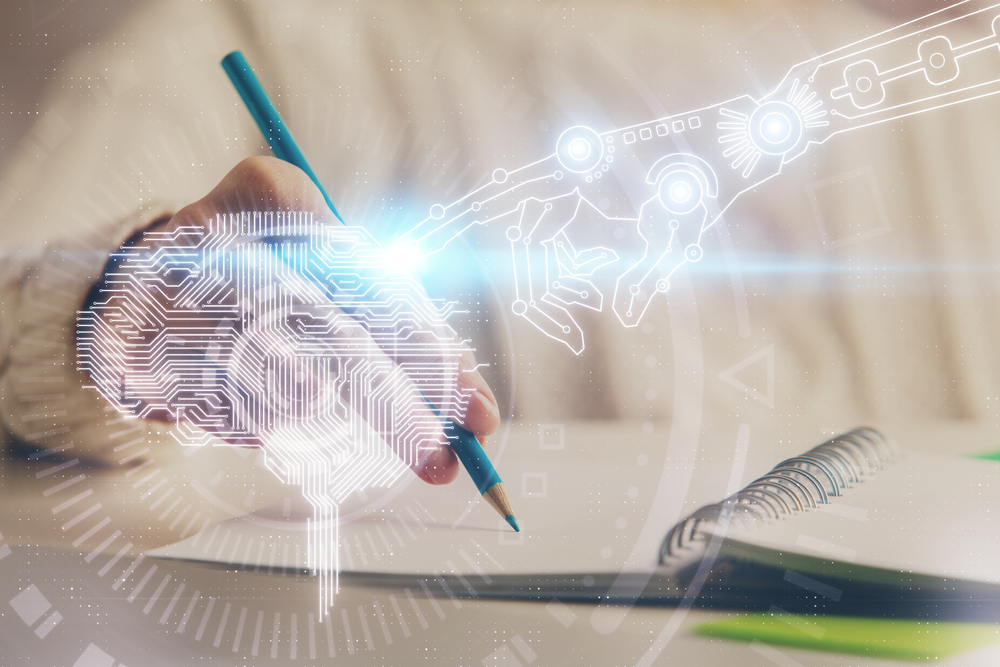“[G]iven current generally available technology, prompts alone do not provide sufficient human control to make users of an AI system the authors of the output.” – Copyright Office report
 The U.S. Copyright Office has released Part 2 of its multi-part artificial intelligence (AI) report, this one focusing on copyrightability of works made by or using AI.
The U.S. Copyright Office has released Part 2 of its multi-part artificial intelligence (AI) report, this one focusing on copyrightability of works made by or using AI.
Part 1 of the report was published in July 2024 and addressed digital replicas created by AI. Among the Copyright Office’s recommendations was the need for passage of a federal law that would create a new form of property right for a person’s digital replica to disincentivize the creation of realistic but false depictions of individuals. However, the agency advised against making that right assignable and suggested that the duration of licenses should not exceed one decade. On the same day that report was issued, a group of senators introduced a bill—the “NO FAKES Act”—to create a right for individuals to control digital replicas of their voice and likeness.
Parts 2 and 3 were slated to publish by the end of 2024 but Register of Copyrights Shira Perlmutter told the Senate IP Subcommittee in November “we’ve been trying to set and follow our own ambitious deadlines” and that her key concern was to be “accurate and thoughtful.”
The report published today follows previous Office rulings and guidance. “After considering the extensive public comments and the current state of technological development, our conclusions turn on the centrality of human creativity to copyright,” said Perlmutter, adding:
“Where that creativity is expressed through the use of AI systems, it continues to enjoy protection. Extending protection to material whose expressive elements are determined by a machine, however, would undermine rather than further the constitutional goals of copyright.”
Some key conclusions of the report are that there is no need for legislative changes to accommodate works made using AI; copyright does not extend to purely AI-generated works and that includes works made using AI “prompts”; and whether there is sufficient human control to warrant authorship must be determined on a case-by-case basis.
The report noted that the Office received more than 10,000 comments in response to its Notice of Inquiry (NOI) issued in August 2023. The NOI followed the launch of the Office’s g copyright and AI initiative to examine policy issues related to generative AI platforms, after several high profile cases brought these issues into the spotlight.
With respect to prompts, the Review Board of the U.S. Copyright Office published a decision in September 2023 denying registration of a work created using the generative artificial intelligence (GAI) system, Midjourney, in which the Board found that Jason M. Allen’s two-dimensional artwork, titled “Théâtre D’opéra Spatial,” contained “more than a de minimis amount” of AI-created content and that the AI content must therefore be disclaimed. Allen had in part argued that he “input numerous revisions and text prompts at least 624 times to arrive at the initial version of the image.” But the Board said he must disclaim the features of the work created by Midjourney.
In line with that decision, the report issued today explained that the practice of “prompt engineering” is too unpredictable to constitute authorship:
“[T]he output of current generative AI systems may include content that was not specified and exclude content that was. Although AI technology continues to advance, uncertainty around how a particular prompt or other input will influence the output may be inherent in complex AI systems built on models with billions of parameters. Some observers describe AI as a “black box,”27 and even expert researchers are limited in their ability to understand or predict the behavior of specific models.”
But the report distinguished between “using AI as a tool to assist in the creation of works and using AI as a stand-in for human creativity.” The former does not limit copyright protection while the latter does.
While there was a range of views in the comments submitted to the NOI as to whether prompt engineering should be considered authorship, the Office ultimately concluded that:
“[G]iven current generally available technology, prompts alone do not provide sufficient human control to make users of an AI system the authors of the output…. While highly detailed prompts could contain the user’s desired expressive elements, at present they do not control how the AI system processes them in generating the output.”

It also provided examples of prompts and outputs where some of the prompt request showed up in the final work but some did not. For example, in the prompt and output pictured left, which the Copyright Office generated itself, “the resulting image reflects some of these instructions (e.g., a bespectacled cat smoking a pipe), but not others (e.g., a highly detailed wood environment). Where no instructions were provided, the AI system filled in the gaps.”

In another example of an actual work submitted to the Office for registration (pictured right), a hand-drawn illustration used as an AI input was eligible for copyright, and the AI output was registered because the applicant disclaimed “‘any non-human expression’ appearing in the final work, such as the realistic, three-dimensional representation of the nose, lips, and rosebuds, as well as the lighting and shadows in the background.’” Ultimately, the Office registered the work “with an annotation stating: ‘Registration limited to unaltered human pictorial authorship that is clearly perceptible in the deposit and separable from the non-human expression that is excluded from the claim.’”
The full report is available here.
The Copyright Office said it plans to publish Part 3 of the report in the “coming months.” It also will supplement its March 2023 registration guidance and update the relevant sections of the “Compendium of U.S. Copyright Office Practices.”
Image Source: Deposit Photos
Author: peshkova
Image ID: 384874110

